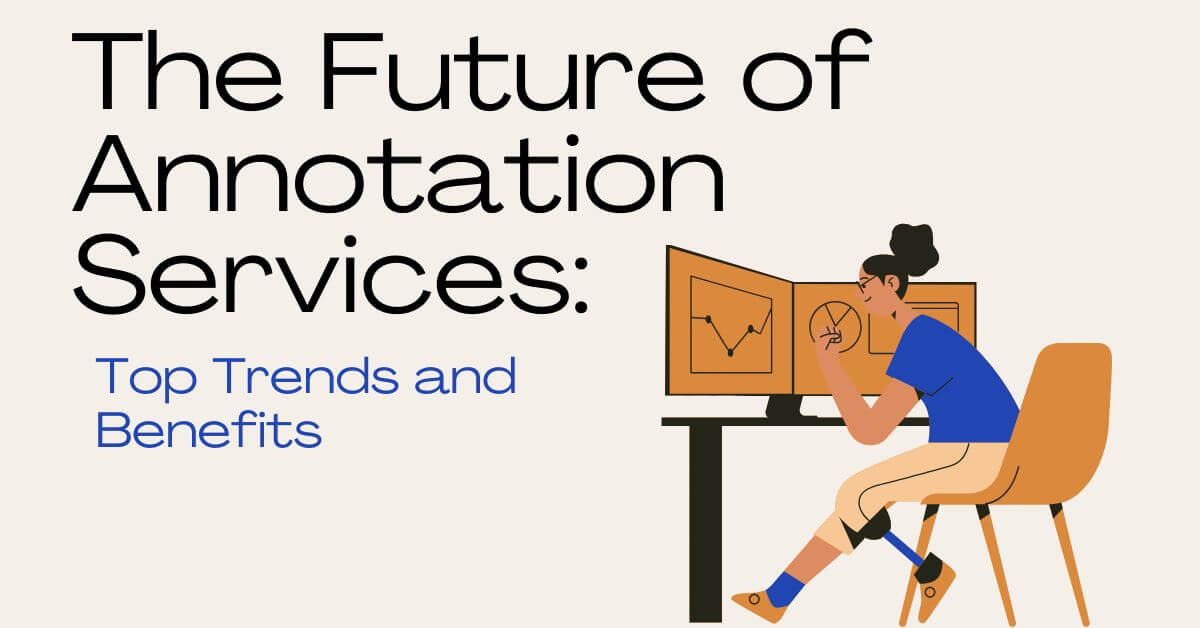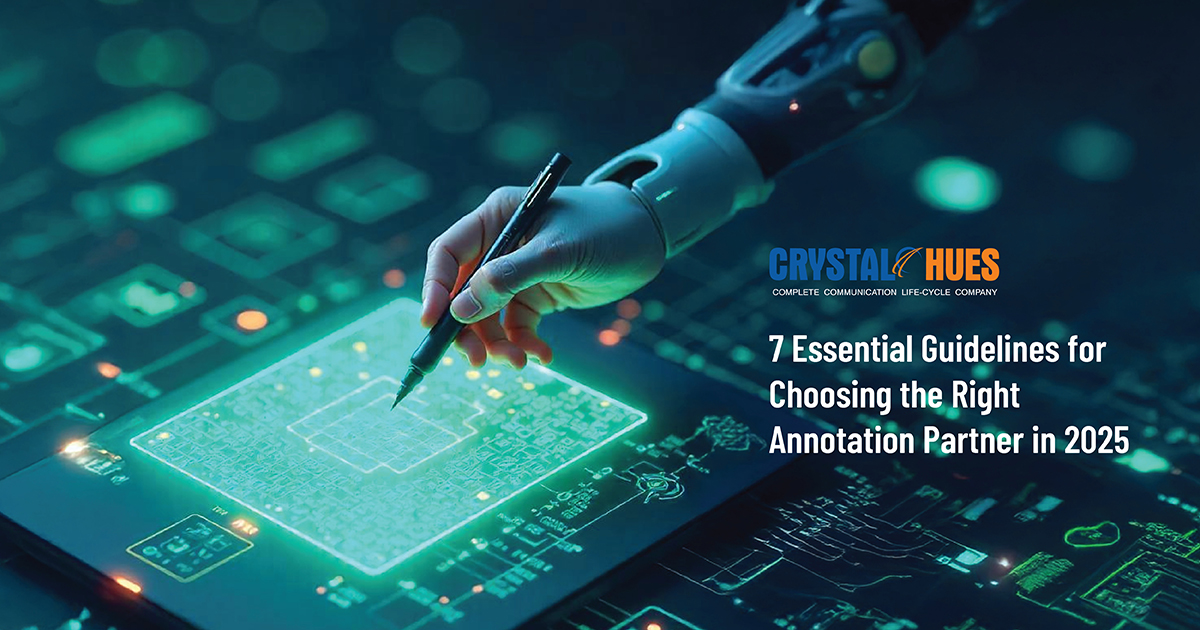
The Future of Annotation Services: Top Trends and Benefits
Data annotation services are quickly
becoming the essential building blocks to create better and new intelligent
systems. The annotation services are not only a mere support to perform the
company’s functions but a necessity to implement the latest AI technologies.
Data Annotation: The Changing Paradigm
What if you had an AI system that could
really think and interact with the world in a way that humans do—read,
interpret, hear, see, contextualize all in one swoop, with ease?
What we are referring to is not something
in the distant future, but it’s happening just now—due to the sophisticated
ways of annotating data. In a game-changing step for how we train AI, we have
moved from labeling one type of data to handling many types of data.
Top Trends Shaping the Future of
Annotation Services
1. Multimodal Data Annotation: Beyond
Single-Dimensional Understanding
What makes AI future-proof is its ability
to take a holistic view of information. Multimodal annotation allows AI systems
to combine multiple data types (text, audio, video, and sensor) to provide a
very rich, contextually aware understanding of a complex environment.
For example, if you are driving an
autonomous vehicle, the vehicle doesn’t merely focus on the road. Rather it
simultaneously processes visual cues, audio signals, and sensor data to make
instant decisions.
2. Industry-Specific Precision
Customised AI solutions are in, generic AI
solutions are out. In the dynamic and modern business environment, one need
specialised annotation services. Industry-specific annotation ensures highly
accurate AI training, from labeling medical images for precise diagnoses to
analyzing transactions in financial systems with exactness.
3. The Efficiency of Machine and Human
Insight
Probably the most exciting trend in the
annotation services is this merging of human expertise in machine learning. By
engaging subject matter experts in the annotation process we leverage their
knowledge and do not lose it simply to automation. Reducing bias and increasing
AI model credibility is done through this hybrid approach.
4. Privacy Preserving Annotation
Techniques
With more and more sensitive data, new
methods to protect privacy with annotation services are coming into focus. Technologies
like federated learning, secure multi-party computation, and homomorphic
encryption make it possible to perform data annotation without compromising
individual privacy. These advancements tackle rising concerns about data
protection while ensuring the AI training process remains effective and
reliable.
5. Adaptive and Real-Time Annotation
With the help of real time data annotation
services, AI models are continuously learning and adapting to emerging in their
new environment. This flexible and adaptive AI approach is not just a static
tool but have developed into a dynamic tool-paving way for tailored and unique
solutions.
6. A Human Touch in a Machine-Driven
World
We are seeing a strange paradox. As we see
more advancement in the field of AI resulting in the outcome of more
sophisticated AI, we are seeing the need of more human control in these
systems. There is a complex intersection of human creativity, empathy, skills,
and contextual understanding with machines learning.
Key Benefits of Annotation Services
Enhanced AI Performance
Responsive AI systems translate to more
precise and comprehensive annotation services.
These annotation services allow AI to talk to and understand the
complexity of hard-world scenarios by offering high-quality as well as
meticulously labelled datasets.
Cost-Effective Innovation
Specialized annotation services are
cost-effective and scalable because building in-house annotation capabilities
can be quite expensive. Without a mass infrastructure investment, organizations
gain access to cutting-edge annotation technologies.
Competitive Advantage
With AI driving innovation, data annotation
has become a strategic differentiator. Advanced annotation services are good
for companies that want to develop more sophisticated, reliable AI applications
faster than their competitors.
Improved Decision-Making
Annotation services offer rich, contextual
training data that allows AI systems to develop models that are more accurate
on a range of domains, including medical diagnostics, or financial forecasting.
Looking Ahead
Our prediction is that by 2025 there will
be a huge jump to even more autonomous annotation systems. It seems very likely
that self-supervised learning techniques will lessen the need for manual
intervention while still allowing high quality data preparation. Privacy,
precision and adaptability will remain the key points of the annotation
ecosystem.
For businesses and developers, the message
is clear: data annotation is no longer in the background — it has become a
critical strategic function. The more advanced and innovative annotation
services are, the more they will be able to harness the transformative
potential of artificial intelligence.




